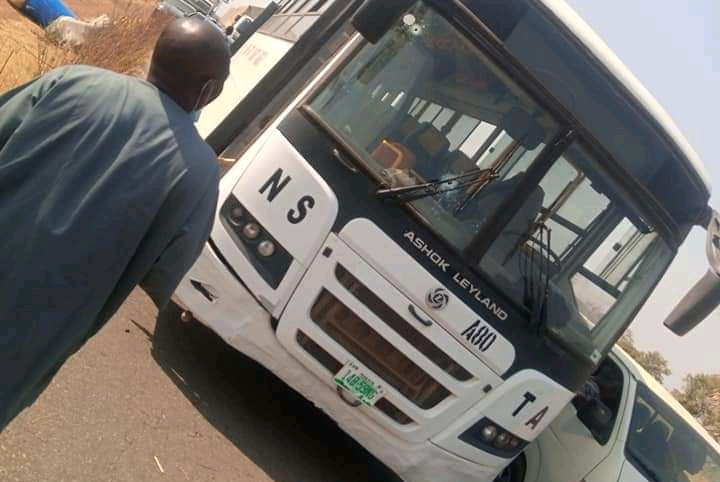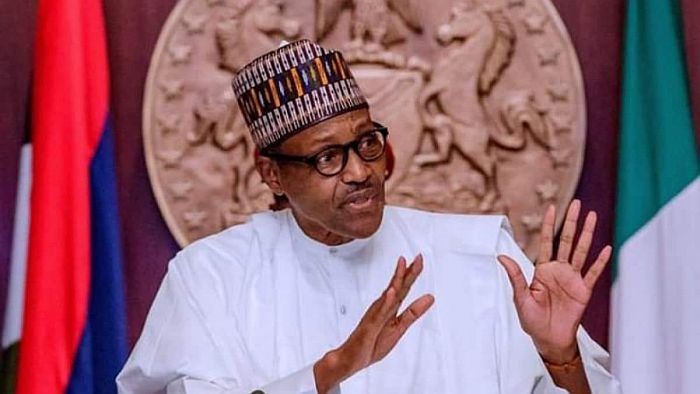By Chidi Amuta
President Buhari’s National Security Adviser, Mr. Babagana Monguno, needs not bother with more seminars and town hall meetings on insecurity.
The seminars and meetings are holding themselves daily in the nightmare of our daily encounter with terror and armed lawlessness. The very conclusions he seeks have already been drawn.
They are etched in the new series of kidnappings, abductions, murders and hold ups all over the country. Just as he was kicking off a series of zonal town hall meetings to distil public perspectives on insecurity in the nation, criminal bandits made their own practical presentation. They abducted over 40 students and collateral others in Kagara, Niger State.
The Kagara incident is yet another in the growing industry of serial school abductions mostly in parts of Nigeria’s Islamic north. State official figures indicate that some 27 school children and about 15 other collateral school officials and their family members are yet unaccounted for after an early morning raid by an armed gang. This is coming barely a few weeks after the massive abduction of over 300 boys of a government school in Kankara, Katsina state. There is currently a hot search for the abductees and their armed captors.
Hope remains alive as prayer candles burn all over the nation that the Kagara students, like their colleagues in Kankara, will come to no harm and will be released to their parents and loved ones. What is uncertain is that their captors and their sponsors will ever be apprehended, prosecuted or in any way brought to book. After the children may have been rescued or freed, there will be the usual Mickey Mouse back and forth as to whether ransom was paid or the bandits had a sudden rush of good behavior and decided to release the children. There will be footage of the students on their return and the usual televised reception gathering of state officials and the students. There may be photo opportunities of benevolent bandits posing with federal and state officials. There will be claims and counter claims by the various arms of the security apparatus as to which of them actually performed the feat. There may even be a clash of good intent between the military and the police as to whose wondrous work it was. For us as a public, what is important now is the safety and freedom of the innocent children and the other collateral captives being held by these agents of the dark.
Yet, what will regrettably remain mysterious is why the bandits never get arrested, prosecuted or why they get stronger and more audacious after each release of hostages. In the growing culture of banditry and the ritual of abductions, negotiated releases and short respite, how come the bandits are being accorded a curious legitimacy and recognition as a new feature of our new normal in the northern states especially?
The war against terrorism and insurgency ought to be about holding people accountable for actions against fellow Nigerians and the state. It ought to be about using security forces to underline the fact that criminal and treasonous actions carry dire consequences. If the massive security dragnet ostensibly laid out all over the country cannot apprehend and bring criminals and insurgents to book, what are they about?
The rise of a new category of violent criminals aptly christened ‘bandits’ is yet another chapter in the curiosity of evolving terminologies in Nigeria’s language of insecurity. Terrorists, militants and now bandits have joined an elongating catalogue of infamy that started off with ordinary armed robbers and sundry common criminals. As it turns out, bandits are armed outlaws who battle the official security forces, rustle cattle, kidnap people, collect ransom from kidnap victims, collect illegal taxes from farmers to allow them plant or harvest their crops.
For disturbing the peace and challenging the Nigerian state and its presiding officialdom, bandits are treated to red carpet meetings and negotiation sessions with state officials including governors and military and police commanders in some northern states. After these meetings, they pose for photo opportunities with state officials and security commanders with their unique battle gear and full arsenal of military grade weaponry. These negotiations are reportedly cemented with troves of cash payouts to the bandits with a tacit understanding that they can keep their weapons, maintain their distance from other citizens and allow the state governments and their official security details carry on with business as usual. As it were, the shortest route to official recognition and unearned compensation by some states is to rent or buy some old AK 47s, use them to harass some farmers or abduct some travelers in order to earn an invitation to the state house. In these states, there are now two recognized realms of armed authority: government and bandits!
There would seem to have been some progress in the evolution of this dubious diarchy. Some traditional rulers and religious leaders have now joined the wagon of negotiating, meeting with and even pleading the cause of the bandits. Still trending is the recent meeting of Sheikh Gumi with bandit squads and their leaders in Zamfara state. The respected Sheikh came out of the meetings almost as a convert to the cause of banditry, pleading for the appeasement of the bandits for the sake of peace. A useful aspect of the Gumi intervention was the recognition that banditry is indeed a consequence of socio economic alienation. No one knows what demographics the bandit leaders represent or the extent to which a random appeasement of these armed miscreants will address let alone end the scandalous inequality that may have driven many of our citizens into desperate criminality.
For those who awaited the action of the president on the Kagara abduction, President Buhari has done and said the obvious. He should be getting bored ordering security forces to ensure the safe release of the abducted children and the others. Significantly, the emphasis in this and previous episodes has been on the safe release of the abductees. A presidential order on a matter as grevious as this ought however to contain a stern and unambiguous directive to fish out the criminals and ensure that they are brought to book as a way of ending this scourge.
It is noteworthy that since the abduction of the Chibok girls, the Dapchi girls and up to the Kankara boys, there have been any number of abductions perhaps on smaller scales. I am not aware that any culprits have been arrested or arraigned in any court in Nigeria for responsibility for these abductions. There have not been any reported incidents of a breakthrough in smashing the cells of these abductors and industrial scale kidnappers. Instead, there is an abundance of claims and counter claims of ransom payments sometimes in millions of dollars to secure the release of those abducted. Sometimes, state officials or paid commission agents have served as conduits for ransom negotiations and actual payments.
Once some captives are released, the focus shifts from criminal liability to official triumphalism. We close our eyes to the necessity to hold people to account, to apprehend criminals and extract consequences for acts of terror against the Nigerian state and for crimes against our common national humanity. Soon enough, the empowered and emboldened criminal gangs reassemble and reorganize, plan future operations and apply the proceeds of their ransom to yet more operations with even better weapons and superior communications.
The unstated conclusion would seem to be that these ransoms and appeasements are being applied to capitalize further exploits and fund new groups in an increasingly lucrative business of human trafficking. I am not aware that our security forces have made any breakthroughs in cracking the cells of these bandit gangs let alone unearthing information that could lead to their liquidation and disbandment.
In the more recent iterations of the armed bandit squads, something interesting seems to have happened. We no longer know the difference between the random criminal bandit gangs and the fanatical zealot terrorists that began as Boko Haram and the other Al Queda affiliates. The franchise of terrorists seems to have expanded and the demarcation lines have become hazy. They all target schools, kidnap priests and clerics, kill many people in public places and ambush state and military officials. The targeting of schools is quite significant as it fits into the doctrinal plank of the original Boko Haram as haters of books and western education. But the original theocratic motivation may have been overwhelmed by the profit motive of ransom hauls and huge negotiated cash settlements.
The wider strategic impact of these school abductions should nonetheless trouble us all. As in the case of the earlier Kankara boys of Katsina state, governor Abubakar Sani Bello of Niger State has ordered the closure of schools in vulnerable districts of the state. Adjoining states may follow suit. In the process, a major strategic victory is being scored by the criminal gangs and their political supporters. Setting education back by even a few weeks means setting the development of northern Nigeria back by years if not decades. And yet, we have major state officials and leaders of the region openly pleading the cause of bandits and armed criminals.
Admittedly, terror and banditry could strike even in the best of places. But what is worrisome about today’s Nigeria is a palpable collapse of leadership consensus across the spectrum of governance. Nothing illustrates this than the cacophony of voices and stampede of perspectives among our leaders especially in the northern half of the country.
The governor of Zamfara State, Bello Muhammad Matawalle, went to Aso Rock earlier this week to plead the case of the bandits. He reportedly told President Buhari that the bandits tormenting his state only took to armed criminality out of desperate deprivation. In other words, please give us some money for their welfare! Similarly, the Bauchi state governor, Bala Mohammed, recently justified herdsmen carrying AK-47 rifles, insisting they need the guns to protect their flock and themselves from rustlers and fellow bandits. Governor, Ahmed Fintri of Adamawa state, has reportedly armed some 3000 local hunters to aid the anti insurgency fight in his state, a rather comic indictment of the official security forces. Governor Samuel Ortom of Benue State has advocated the right of every Nigerian to bear arms for self defense. A more Nigerian governor in matters spiritual, Darius Ishaku of Taraba state, has asked Nigerians to pray for an end to the scourge of insecurity around the country.
On the other hand, Governor Nasir El-Rufai of Kaduna state, a more secular and constitution minded leader, has stoutly opposed meetings and dialogues with bandits. He has also disagreed with his colleague governors in the north on security strategies, insisting that governors should not dialogue with bandits as it emboldens and confers on them a legitimacy that is strange to law. On his part, the Minister of Defence, Mr. Bashir Magashi, has added a Hobbesian dimension to the national security headache. He admits that the matter of general insecurity has gotten so out of hand that ‘self help’ may now be an inevitable option for the general public. He has thrown open citizen security to a public free for all. The minister has asked every Nigerian to defend themselves from bandits and armed criminals the best way they deem fit! Everyman to himself; forget the state!
At best, the official Nigerian position on the cascading insecurity in the country remains one of armed confrontation and neutralization. In extreme cases of insurgency, Nigeria’s approach remains one of counter terrorism and anti insurgency. In moderate criminal cases, the Nigerian state hopes that a combined force of the police and the military will outgun dangerous people and restore law, order and security.
At the international level, however, there is now a new thinking. It is now being realized that the insecurity in the Sahel region of Africa, which Nigeria shares, is not just about insurgency and fundamentalist terrorism. Rather, it is a product of increasing poverty affecting a population of over 12 million in countries as far afield as Sudan, Mali, Burkina Faso, Nigeria, Niger. Chad and Cameroun.
Similarly, climate change has driven millions in the region into hunger and poverty. All this has made the region a fertile ground for the ripple effects of the southward push of a dying Islamic fundamentalist terrorism now threatened in Europe and parts of the Middle East. In countries where governance failure has led to a weakened internal security situation, criminal elements have found a soft operating ground. Nigeria may have to look hard at the latter imperative and seek the necessary international cooperation and assistance.
The new US secretary of state, Anthony Blinken, has in tis new light found time to address instability and terrorism in the Sahel. US and European interest in the area is not new. Emmanuel Macron has promised not to withdraw French forces from the region. As a matter of fact, both the US and France in particular have expressed their security concerns about the area through active military presence. In addition to contingents of French forces stationed in Mali, Burkina Faso and Niger, the US has a drone base in Niger. Both the United Kingdom and the United States have, to varying degrees, been collaborating with Nigeria in intelligence sharing , training and humanitarian efforts to engage the increasing instability and terrorism in the area.
The new thrust of the international concern on insecurity in the Sahel has been underlined by Mr. Blinken. It is the realization that military effort and counter terrorism operations alone cannot put an end to insecurity in the region. The area is home to worsening poverty, serious environmental and climate change threats and various forms of deprivation that have combined to drive millions of people into armed extremism and fanatical indulgences. Economic intervention and urgent massive humanitarian assistance must be thrown in in addition to insistence on accountable governance.
The United Nations Under Secretary General for Humanitarian Affairs, Mr. Mark Lowcock, recently broke down the strategic threats in the Sahel to factors like: population pressures, conflicts, climate change, poverty and poor governance which pays scant attention to the real needs of people. These have been deepened by militarization of armed groups and the activities of criminal gangs mostly for financial gains. Sometimes the raids and abductions as we have seen in Nigeria are recruitment drives to expand the membership of the roving armies.
The optimism that the Kagara students will be released is our legitimate entitlement. But it should not blind us to the stark failure of strategy and doctrine in official Nigerian security thinking. The strategy of laying out red carpets for criminal bandits will worsen a bad situation. Hugging armed bandits with sacks of cash can only breed more abductions and a viral spread of the menace by making banditry attractive and rewarding. Similarly, the thinking that appeasement of armed criminals through amnesty programmes and selective re-habilitation can only make the cult of armed criminality more enticing. It is already sending out signals of double standards to the rest of the Nigerian society.
What the situation urgently calls for is a strategy that uses the security forces to smash the networks of terror and criminality in order to exact consequences through the force of law. Criminals should be discouraged through strict enforcement of existing laws and further stiff penalties. We probably need new laws. How about the death sentence for armed banditry as with kidnapping now in Lagos State?
In tandem, the federal and various state administrations in the most affected areas must quickly come up with a comprehensive and sustainable social investment scheme (not tokenism) to systematically reduce the inequality that has made parts of our country the festering hotbeds of armed criminality.
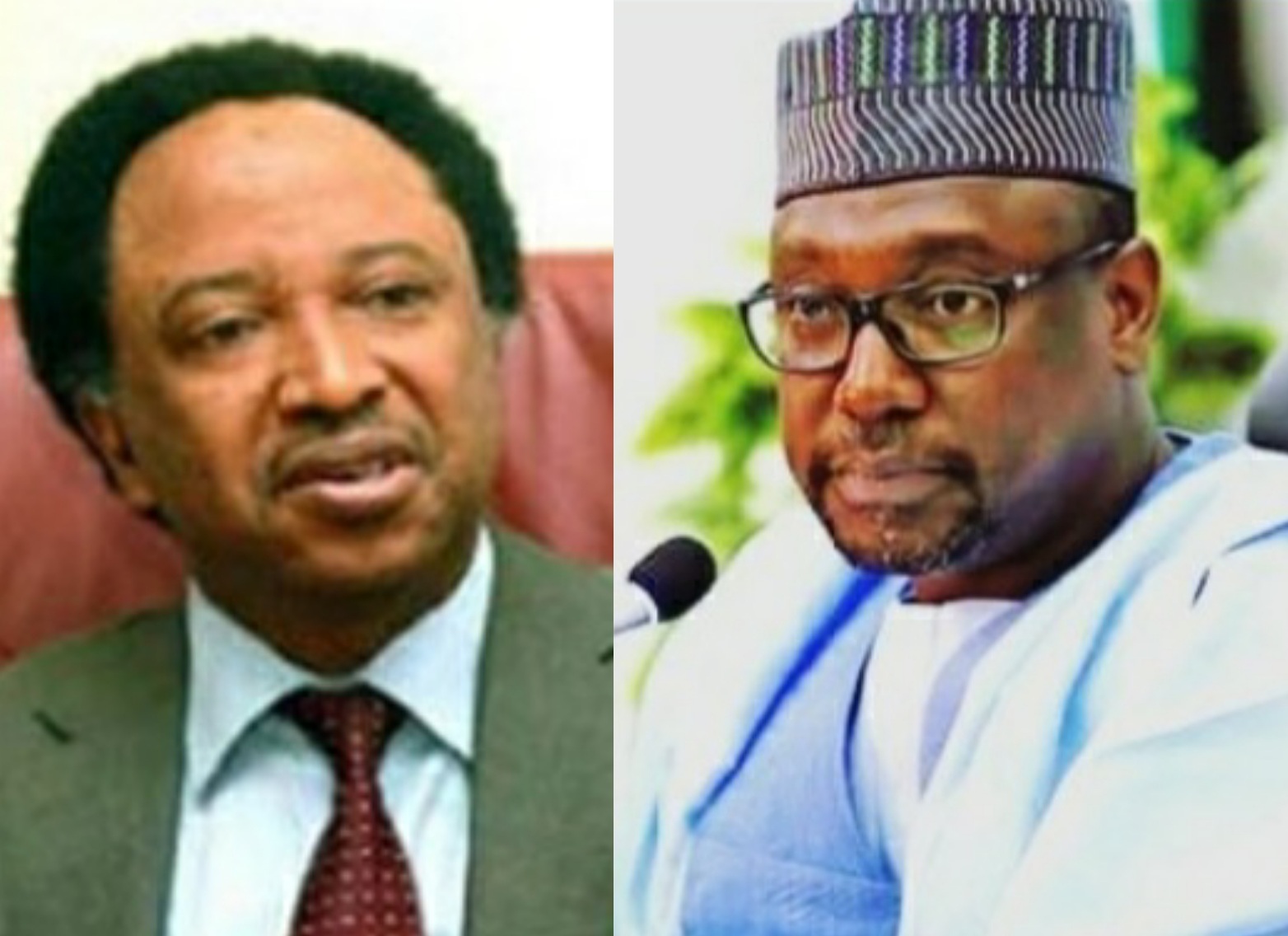
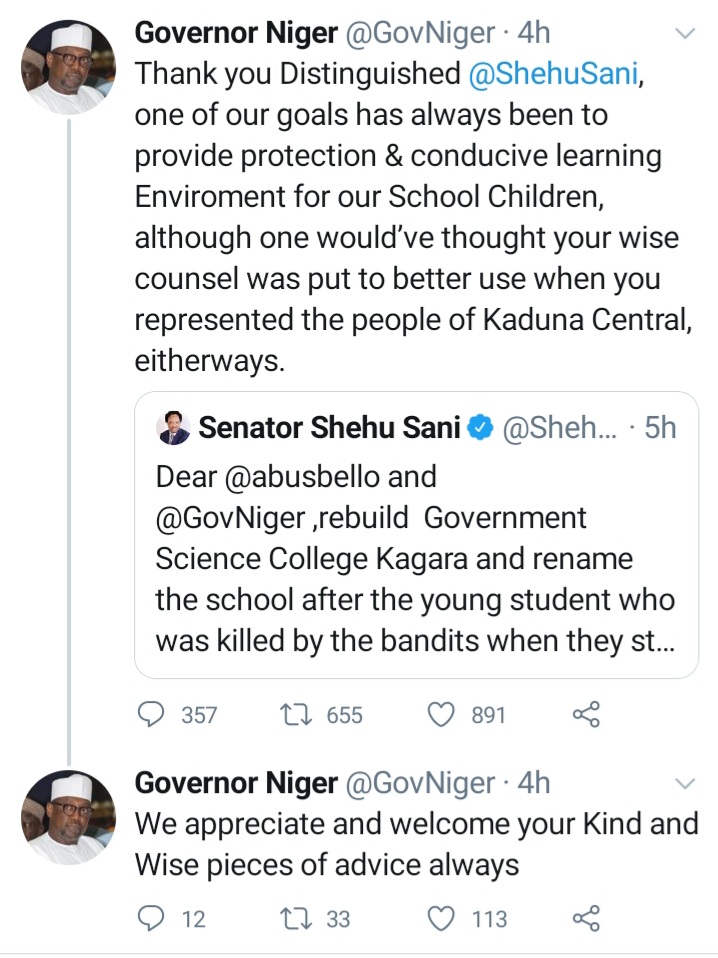

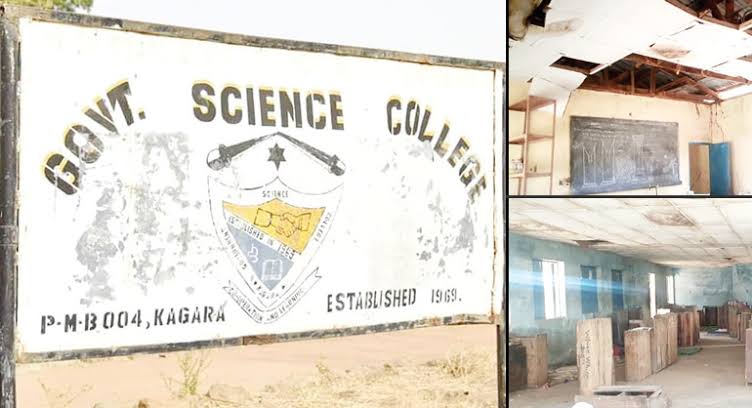
![[2014 – 2021] Timeline of mass school kidnappings in Nigeria](https://thenewsguru.ng/wp-content/uploads/2021/02/Gunmen.jpg)
